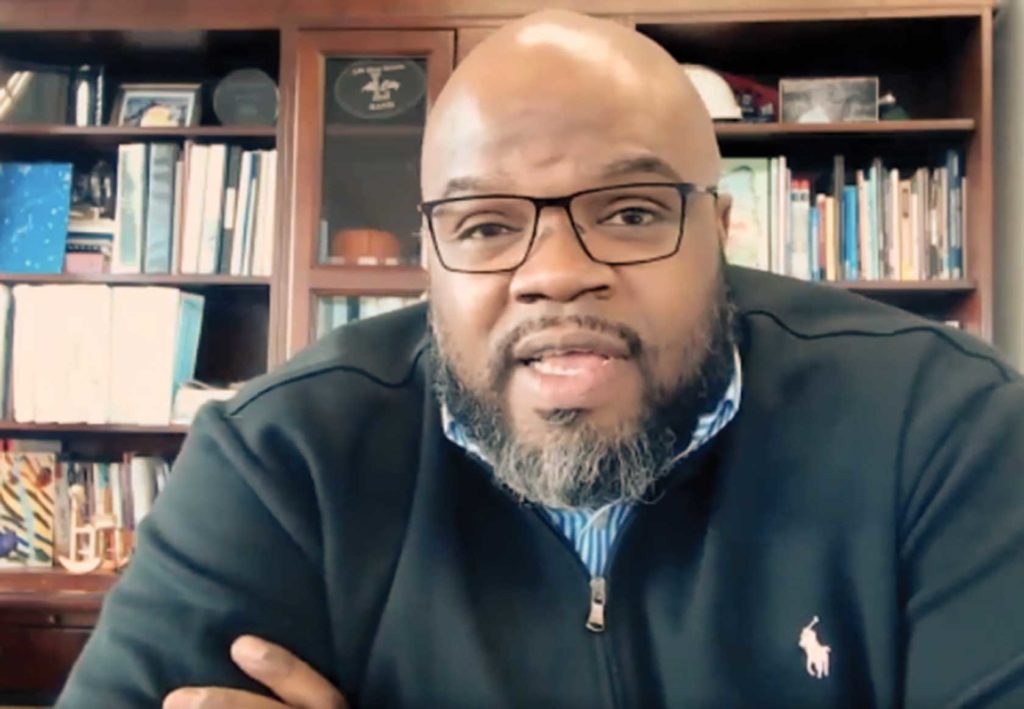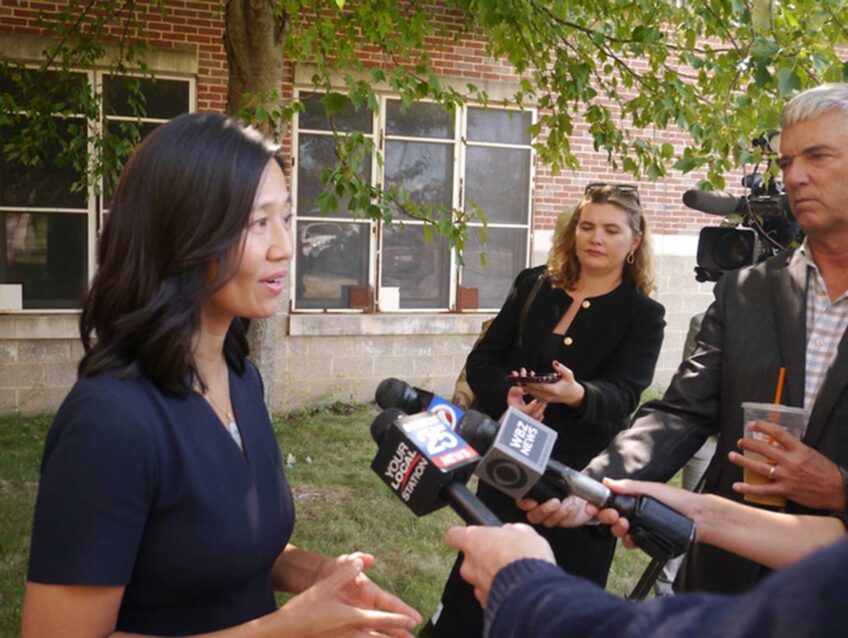A change of course for K-12 education?
Advocates see Healey’s pick as a fresh start for state education policy

When Governor-elect Maura Healey’s transition team announced in December the appointment of Lynn Schools Superintendent Patrick Tutwiler as the state’s new education secretary, the move signaled to some a break from trends that have dominated education policy for much of the last 30 years.
Tutwiler, who taught history at Brighton High School and later served there as headmaster, stands in stark contrast to outgoing secretary James Peyser, who headed the Pioneer Institute, a conservative Massachusetts think tank.
Coming on the heels of a push by members of the state Board of Elementary and Secondary Education (BESE) for a state intervention in the Boston Public Schools, the Healey administration’s pick for the top education policy job comes as a relief to some local education activists.
“Having an advocate for Boston Public Schools, someone who understands the importance of resources for our schools, is significant,” said Boston Teachers Union President Jessica Tang.
Ruby Reyes, executive director of the Boston Education Justice Alliance, said, “This is someone who’s coming with a vast experience and understanding of Boston Public Schools, Lynn Public Schools and the range of necessities for school districts with large numbers of low-income families of color.”
Tutwiler is poised to step into the state education policy role on the heels of a tumultuous period for public schools nationally and locally.
At the national level, federal policies pushed by the administrations of former presidents George W. Bush, Barack Obama and Donald Trump prioritized charter schools and market-driven approaches to education. The most recent federal policy, the Obama administration’s Race to the Top initiative, created a framework under which schools competed against each other for federal funding tied to standardized test scores. Under that program, teachers in schools that were deemed “underperforming” were let go and forced to reapply for their jobs.
It was against that backdrop in 2015 that former Gov. Charlie Baker tapped Peyser, who then headed the NewSchools Venture Fund — a nonprofit that channels funding to charter school startups — to set state education policy. Interestingly, Peyser had never taught in a school or served as an administrator in a school or school system.
Peyser’s business-world background was in keeping with the prevailing ethos in the education reform movement at that time, according to former BESE member Harneen Chernow.
“The market-driven approach to education reform swept the country — Democrats and Republicans alike,” she said. “It’s like the culture of this field was that if you’re an educator, you’re not qualified to participate in the conversation.”
But many of the education reform policies pushed by the Baker administration began to unravel in recent years.
In 2016, charter-school backers, including Peyser and Baker, supported a ballot question that would have lifted a statewide cap on charter school expansion — a move public school supporters said would have diverted millions of dollars in funding from local school districts, effectively gutting them.
The ballot question’s resounding defeat by Massachusetts voters signaled a withdrawal of public support from the controversial schools, many of which boasted high scores on the state’s standardized MCAS exam while at the same time showing high rates of suspension and student attrition.
Another repudiation of state policy came as a result of threats from BESE board members of a partial or full takeover of the Boston Public Schools. The public conversation over such takeovers sparked greater scrutiny of the practice. The state’s takeovers of school districts in Lawrence, Southbridge and Holyoke, and a partial takeover in Springfield, have produced no long-term or substantial gains in educational outcomes, leaving many to question the state’s capacity to run districts or even individual schools such as Boston’s Dever and Holland schools, which have similarly floundered under state takeovers.
The failure of past education reform policies has opened the door for a fresh approach, Chernow says.
“It’s a different time,” she said. “People have moved away from policies that proved the state didn’t have the resources and know-how to make changes. It hasn’t worked. Why are we still holding onto those strategies?”
With the recent scrutiny of state and federal education policies, education activists expressed cautious optimism that a new administration would signal a break from the charter expansion and other privatization schemes supported by Peyser and by former Commissioner Paul Reville, who served in the administration of Gov. Deval Patrick.
“We are pleased that Governor-elect Maura Healey has appointed a secretary of education who has a deep and varied background in public education,” Massachusetts Teachers Association President Max Page said in a statement sent to news media. “We fully expect Dr. Patrick Tutwiler to bring a new vision to the office, one fully rooted in the public education community. But the proof will be in the policies that he supports.”
While Tutwiler will steer the policy for the state’s K-12 education system, he will still have to contend with a state board of education that has been appointed by Baker. In the months before Baker’s term ended, he replaced two board members whose terms had ended — James Morton and Amanda Fernandez, both of whom had voiced opposition to a state intervention in BPS. The board elects the state’s Commissioner of Elementary and Secondary Education.
Observers say Healey could apply pressure on the current commissioner, Jeff Riley, to resign, if she is willing to expend political capital on that endeavor.
Local activists expressed confidence in Tutwiler’s ability to set state policy amid the uncertainty that comes with a new administration.
“I believe strongly that our state’s education policy needs to be led by someone who understands educational institutions and how they function,” said Edith Bazile, a former BPS teacher and administrator who now heads the group Black Advocates for Education Excellence. “Dr. Tutwiler is a highly dedicated professional who made a positive change with the students, teachers and staff while he was at BPS. He’s a highly effective and competent leader.”





